Current Projects
Showing 101 - 125 of 324
324 results found

The GEF project “Implementation of the Ecosystem Approach in the Adriatic Sea through Marine Spatial Planning” (GEF Adriatic Project) is a sub-regional project, implemented in Albania and Montenegro, which aims to restore the ecological balance of the Adriatic Sea through the implementation of the Ecosystem Approach (EcAp) and Marine Spatial Planning (MSP).
The specific objectives of the Project are to:
-
Increase the level of knowledge in participating countries to achieve joint assessment, protection and sustainable use of marine areas (Outcome 1: Science-based consensus among sub-regional countries on Good Environmental Status of the Adriatic Sea; and Outcome 2: Programme on integrated observation and monitoring is agreed among Adriatic countries, including a set of regionally agreed common indicators).
-
Strengthen participating countries' capacity for sub-regional marine management through targeted demonstration of successful tools and practices (Outcome 3: Marine Spatial Planning demonstrates how environmental status of all Adriatic countries could be improved)
-
Share knowledge and experiences to secure successful participation of stakeholders (Outcome 4: Increased national and regional awareness of the usefulness of the ecosystem approach and marine spatial planning).
The project has three main components.
Component 1: Consolidating common knowledge to utilize Ecosystem Approach (EcAp) as applied by UNEP/MAP and Blue Growth in the Adriatic sub-region
Component 1 aims to consolidate the knowledge that already exists in the two beneficiary countries (Albania and Montenegro) with regard to the implementation of the EcAp in this part of the Adriatic sub-region. In addition, through this component, new data will be collected with the aim to assess the current situation regarding the ecological status. The respective assessment will facilitate implementation of the MSP.
Component 2: Integrating Marine Spatial Planning into planning process and capacity building for improved sub-regional environmental marine management
The main objectives of Component 2 are to:
-
Develop a methodology for integrating EcAp and MSP;
-
Test the methodology by developing a Marine Spatial Plan for a designated zone using inputs from implementation of IMAP/EcAp in the Adriatic;
-
Build capacities of beneficiary countries for the application of MSP integrated with EcAp.
This Component is also a specific added value of the project as it is providing integration of two key governance frameworks developed under the Barcelona System – Ecosystem Approach and Marine Spatial Planning that is a practical novelty within the System, but also beyond it as well.
Component 3: Knowledge management, Stakeholder involvement and Communication Strategy
This component aims at building support for the project's implementation with a view to increasing its chances for success. In addition, it aims at increasing local and regional awareness of the usefulness of the ecosystem approach and marine spatial planning.

The objective of the INMS project is to improve the understanding of the global nitrogen cycle towards the establishment of an International Nitrogen Management System using targeted research. INMS is executed by the International Nitrogen Initiative, hosted by the UK Centre for Ecology & Hydrology (UKCEH).
Component 1: Tools to apply methods for understanding Nitrogen Cycle
This component is developing the necessary tools and approaches that form the basis for improving understanding and quantification of the global nitrogen cycle, and hence a foundation for developing the necessary interventions at global and regional scales. Component 1 focuses on establishing methods, models and indicators, considering especially the datasets that are required.
Component 2: Regional / global quantification of N use, flows, impacts and the quantitative benefits of applying best management practices
The aim of this component is to apply tools, methods and data to synthesize knowledge on nitrogen flows, threats and benefits in the context of the global nitrogen cycle. It is applying key inputs in the form of tools and methods developed in Component 1, together with outcomes from the regional demonstration activities of Component 3, to analyze the current status of N flows, threats and benefits.
Component 3: Regional demonstration of Full Nitrogen Approach
This component establishes targeted research demonstrations on the nitrogen cycle at a regional scale for each of the main world regions. The approach is to demonstrate how a joined up approach to nitrogen management can catalyze stronger action for a cleaner environment (water, air, greenhouse gas, ecosystems, soils) and improved food and energy production simultaneously. The choice of regional scale reflects the need to link between local and global scales, to share regionally specific lessons and to work in partnership with regional intergovernmental and other international processes.
Component 4: Awareness raising and knowledge sharing
The purpose of this component is to support internal and external communication and knowledge exchange in the project. Key to the success of this targeted research activity is the uptake of emerging results by other partners, ongoing engagement and exchange of ideas with stakeholders to ensure that tools and products are fit for purpose and communication of all results in the most effective way.
Showing 101 - 125 of 324




